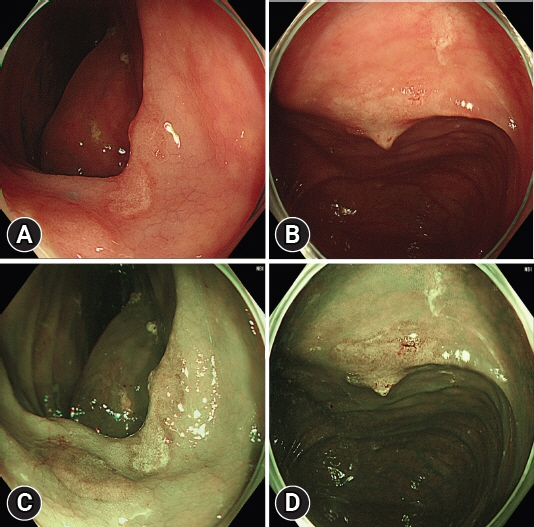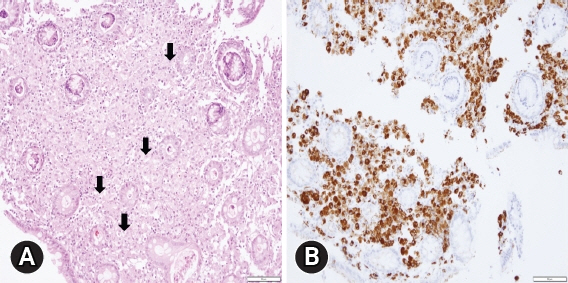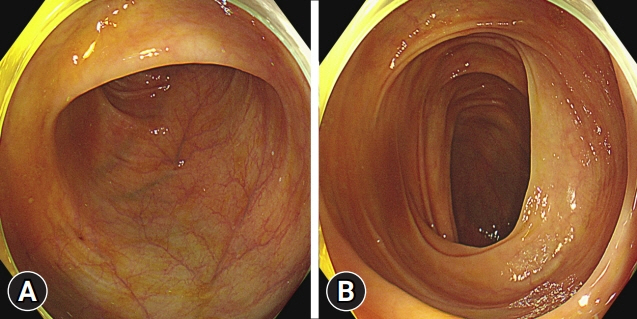Clin Endosc.
2024 May;57(3):415-416. 10.5946/ce.2024.007.
A rare colonoscopic finding in a renal transplant recipient
- Affiliations
-
- 1Department of Health Promotion Medicine, Ewha Womans University Seoul Hospital, Seoul, Korea
- 2Department of Internal Medicine, Yonsei University College of Medicine, Seoul, Korea
- 3Institute of Gastroenterology, Severance Hospital, Yonsei University College of Medicine, Seoul, Korea
- 4Inflammatory Bowel Disease Center, Severance Hospital, Yonsei University College of Medicine, Seoul, Korea
- KMID: 2555906
- DOI: http://doi.org/10.5946/ce.2024.007
Figure
Reference
-
1. Mitchell A, Dugas A. Malakoplakia of the colon following renal transplantation in a 73 year old woman: report of a case presenting as intestinal perforation. Diagn Pathol. 2019; 14:22.2. Ajabnoor R, Mawardi M, Almutawa A. Colonic malakoplakia in a liver transplant recipient: a case report. Hum Pathol Case Rep. 2019; 18:200323.3. Hyun KH, Shin HD, Kim DH. Malakoplakia in a healthy young female patient. Korean J Intern Med. 2013; 28:475–480.4. Mousa OY, Corral JE, Nassar A, et al. Colonic mass and chronic diarrhea in a renal transplant patient: an uncommon case of malakoplakia: 1441. Am J Gastroenterol. 2017; 112:S783. S785.5. Haq K. Malakoplakia in kidney transplant recipients. Kidney News. 2023; 15:10.
- Full Text Links
- Actions
-
Cited
- CITED
-
- Close
- Share
- Similar articles
-
- A case of amebic colitis in a renal-transplant recipient
- A Case of Buschke-Lowenstein Tumor in Renal Transplant Recipient
- Squamous Cell Carcinomain Renal Transplant Recipient
- Disseminated Cytomegalovirus Infection after Renal Transplantation: A Case Report
- Gastric Mucormycosis in a Renal Transplant Recipient




